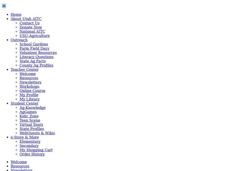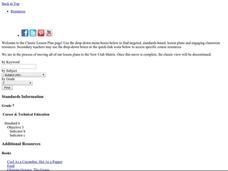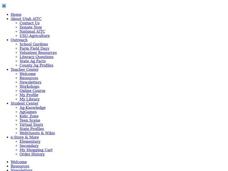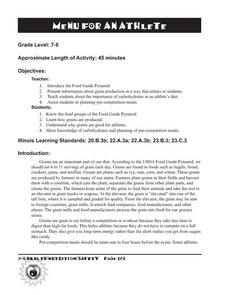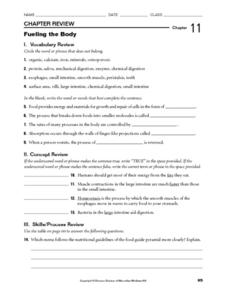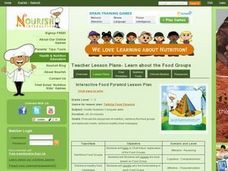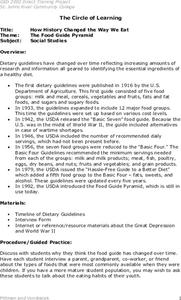Curated OER
Food Pyramid
Here is an engaging cross-curicular lesson which incorporates elements of language arts and heatlh. Groups of learners are assigned to one vowel sound. They work together to find pictures of food out of a booklet that have the long vowel...
Curated OER
Fun with the Food Pyramid
Students explore the five food groups and design a graphic organizer to organize the data researched. A one day food diary kept by students assists them in self-monitoring and self-evaluation of their eating habits.
Curated OER
Getting the Most Nutrition from Your Food
Healthy eating is a habit that one can never start too early. Learners in grades five through seven, work through a series of activities and informational reading to understand how to make good food choices. You'll find a full...
Curated OER
The Quicker the Better? Food Processing
Kids explore food choices, nutrition, and agriculture through a variety of sources and activities. They research unknown words on food labels, test the salt content in canned vs non-canned foods, and discuss processed foods. The lesson...
Curated OER
Nutrition Matters
Investigate nutrition and the food pyramid. Fifth graders will use computer software to write a paragraph about nutrition. They will then diagram the food pyramid and gather and organize a collection of healthy recipes.
Curated OER
Imports and Exports for Making a Food Pyramid
Students examine the food pyramid and discuss it nutritional value. They play a game to determine what types of foods and number of servings they need to complete food pyramids. they can i"import" or "export" cards with foods they need...
Curated OER
The Food Pyramid
Third graders research a food pyramid website and research a healthy diet. In this food pyramid lesson, 3rd graders complete a puzzle based on the research they've completed and create a healthy main course menu.
Curated OER
I Can Eat A Rainbow!
In this planning a healthy meal worksheet, students use a color guide with symbols to color a plate to designate the food groups, use it to plan a healthy balanced meal, and rate their plate. Students complete 15 activities and answers.
Curated OER
Label Language
Kids use a handy label decoder to better understand what they read on food packages. They analyze the nutrition is a variety of pre-packaged food items by filling out a food label worksheet. A food model kit link and three additional web...
Curated OER
Food Groups
For this food group worksheet, students will focus on vocabulary enhancement. Students will complete 7 multiple choice questions by reading each question and choosing the answer that depicts what is pictured to the left of each question.
Curated OER
Menu for an Athlete
Football, basketball, softball. What do these sports have in common? Athletes. Young scholars learn about and discuss the food pyramind, especially grains, with the thought that they will be planning a pre-competition meal and snack for...
Choose My Plate
MyPlate Crossword Puzzle
Reinforce food group facts with a crossword puzzle that highlights healthy nutrition and cooking habits as presented by the MyPlate eating recommendations.
Curated OER
Food and Nutrition
Students participate in an after school program that promotes decision making, cooperation, choosing healthy foods, recognizing and naming a variety of foods, state healthy benefits from eating healthy foods and involving oneself in...
Curated OER
What's on My Plate?
Kids work together in groups to discuss and understand the differences between a typical diet and a healthy one. They use the My Plate recommendations to compare what they eat with what they should be eating according to the MyPlate...
Curated OER
THE FOODS WE EAT
Students discuss the five food groups and the seven basic nutrients. They decorate Food We Eat booklet pages with pictures of foods found on background, rubber stamp and animation tools in KidPix. (Booklet has a page for each food group.)
Curated OER
WHAT'S ON YOUR PLATE?
Students examine different food groups and identify the daily amounts of each that are necessary for healthy eating. In this food pyramid lesson students evaluate their own diets and see how they can eat more nutritiously.
Curated OER
What's on Your Plate?
First graders, after studying the food guide pyramid, create mock dinner plates. They include on these plates magazine cutouts of foods from each of the groups in the food guide pyramid.
Curated OER
Nutrition
Pupils design a meal plan with healthy foods based on the food guide pyramid. In this nutrition lesson plan, students identify healthy and unhealthy choices, watch a PowerPoint, and complete a group activity based on the food pyramid.
Curated OER
Fueling the Body
In this nutrition worksheet, students review the organs and enzymes that are part of the digestive system. Then students review the food pyramid by comparing two menus. This worksheet has 9 fill in the blank, 4 true or false, and 5 short...
Curated OER
Does Your Diet Stack Up?
Third graders explore nutritional variety. In this nutritional variety lesson, 3rd graders explore the many options for a healthy and well balanced diet. Students explore the food pyramid with nutritional guidelines from other countries.
Curated OER
Second Servings
Second graders understand the appropriate sizes for food portions. In this food groups lesson plan, 2nd graders create and measure a meal using correct portion sizes and correct measurements.
Curated OER
Interactive Food Pyramid
Students participate in the game, "Talking Food Pyramid." For this nutrition lesson, students recognize the organization of foods in to five groups. Students conclude by physically classifying a selection of foods in two groups.
Curated OER
Goal Setting
Students understand how they can incorporate dietary guidelines in their daily life. In this investigative instructional activity students set dietary goals and incorporate an activity to learn how to create a new seed variety while...
Curated OER
How History Changed the Way We Eat
Students participate in a lesson that is concerned with the history of the food pyramid and how it evolved and changed into its modern state. After being presented with the information they conduct classroom discussions about the research.




